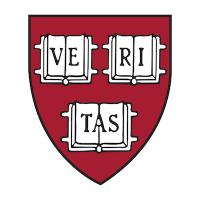What do they do?
Plan, direct, or coordinate clinical research projects. Direct the activities of workers engaged in clinical research projects to ensure compliance with protocols and overall clinical objectives. May evaluate and analyze clinical data.
Also known as:
Clinical Coordinator, Clinical Program Coordinator, Clinical Program Manager, Clinical Research Administrator, Clinical Research Coordinator, Clinical Research Manager, Clinical Research Nurse Coordinator, Clinical Trial Coordinator, Clinical Trial Manager, Research Coordinator
-
1.9%
Change
Ranks #40 in job growth rate90Job Openings
Ranks #26 in net job growth
Looking for colleges that offer a specific major? Use the College Match Tool to find your best-matched schools and discover your estimated Net Price!
- Bachelor's degree (37%)
- Master's degree (34%)
- Doctorate or Professional Degree (20%)
- Associate's degree (4%)
- Some college, no degree (3%)
- High school diploma equivalent (2%)
- Less than high school diploma (<1%)
Most Popular Majors that prepare Clinical Research Coordinators
-
#1
-
Degrees Granted
79,503
-
Female Students
53,804
-
Male Students
25,699
-
Median Starting Salary
$40,800
-
-
#2
-
Degrees Granted
17,028
-
Female Students
7,052
-
Male Students
9,976
-
Median Starting Salary
$54,000
-
-
#3
-
Degrees Granted
12,596
-
Female Students
6,961
-
Male Students
5,635
-
Median Starting Salary
$45,700
-
-
#4
-
Degrees Granted
9,290
-
Female Students
6,486
-
Male Students
2,804
-
Median Starting Salary
$42,090
-
-
#5
-
Degrees Granted
9,112
-
Female Students
5,262
-
Male Students
3,850
-
Median Starting Salary
$44,700
-
People in this career often have these skills:
- Reading Comprehension - Understanding written sentences and paragraphs in work-related documents.
- Active Listening - Giving full attention to what other people are saying, taking time to understand the points being made, asking questions as appropriate, and not interrupting at inappropriate times.
- Writing - Communicating effectively in writing as appropriate for the needs of the audience.
- Speaking - Talking to others to convey information effectively.
- Coordination - Adjusting actions in relation to others' actions.
- Critical Thinking - Using logic and reasoning to identify the strengths and weaknesses of alternative solutions, conclusions, or approaches to problems.
- Monitoring - Monitoring/Assessing performance of yourself, other individuals, or organizations to make improvements or take corrective action.
- Social Perceptiveness - Being aware of others' reactions and understanding why they react as they do.
- Complex Problem Solving - Identifying complex problems and reviewing related information to develop and evaluate options and implement solutions.
- Judgment and Decision Making - Considering the relative costs and benefits of potential actions to choose the most appropriate one.
- Time Management - Managing one's own time and the time of others.
- Management of Personnel Resources - Motivating, developing, and directing people as they work, identifying the best people for the job.
- Active Learning - Understanding the implications of new information for both current and future problem-solving and decision-making.
People in this career often know a lot about:
- Customer and Personal Service - Knowledge of principles and processes for providing customer and personal services. This includes customer needs assessment, meeting quality standards for services, and evaluation of customer satisfaction.
- English Language - Knowledge of the structure and content of the English language including the meaning and spelling of words, rules of composition, and grammar.
- Administrative - Knowledge of administrative and office procedures and systems such as word processing, managing files and records, stenography and transcription, designing forms, and workplace terminology.
People in this career often have talent in:
- Oral Comprehension - The ability to listen to and understand information and ideas presented through spoken words and sentences.
- Written Comprehension - The ability to read and understand information and ideas presented in writing.
- Oral Expression - The ability to communicate information and ideas in speaking so others will understand.
- Written Expression - The ability to communicate information and ideas in writing so others will understand.
- Problem Sensitivity - The ability to tell when something is wrong or is likely to go wrong. It does not involve solving the problem, only recognizing that there is a problem.
- Deductive Reasoning - The ability to apply general rules to specific problems to produce answers that make sense.
- Inductive Reasoning - The ability to combine pieces of information to form general rules or conclusions (includes finding a relationship among seemingly unrelated events).
- Information Ordering - The ability to arrange things or actions in a certain order or pattern according to a specific rule or set of rules (e.g., patterns of numbers, letters, words, pictures, mathematical operations).
- Speech Recognition - The ability to identify and understand the speech of another person.
- Speech Clarity - The ability to speak clearly so others can understand you.
- Near Vision - The ability to see details at close range (within a few feet of the observer).
People in this career often do these activities:
- Schedule activities or facility use.
- Interview employees, customers, or others to collect information.
- Prepare operational progress or status reports.
- Communicate organizational information to customers or other stakeholders.
- Maintain regulatory or compliance documentation.
- Communicate with government agencies.
- Monitor organizational compliance with regulations.
- Monitor activities of individuals to ensure safety or compliance with rules.
- Calculate numerical data for medical activities.
- Prepare medications or medical solutions.
- Instruct patients in the use of assistive equipment.
- Analyze data to identify or resolve operational problems.
- Analyze risks to minimize losses or damages.
- Coordinate operational activities with external stakeholders.
- Maintain operational records.
- Interpret research or operational data.
- Code data or other information.
- Manage operations, research, or logistics projects.
- Conduct employee training programs.
- Conduct financial or regulatory audits.
- Purchase materials, equipment, or other resources.
- Coordinate with external parties to exchange information.
- Develop organizational methods or procedures.
- Advise customers on technical or procedural issues.
- Confer with organizational members to accomplish work activities.
- Maintain knowledge of current developments in area of expertise.
- Perform clerical work in medical settings.
- Plan facility layouts or designs.
- Develop promotional materials.
- Promote products, services, or programs.
- Manage organizational or project budgets.
This page includes data from:

 Occupation statistics: USDOL U.S. Bureau of Labor Statistics Occupational Employment Statistics
Occupation statistics: USDOL U.S. Bureau of Labor Statistics Occupational Employment Statistics
 Videos: CareerOneStop, USDOL/ETA and the Minnesota Department of Employment & Economic Development
Videos: CareerOneStop, USDOL/ETA and the Minnesota Department of Employment & Economic Development




















